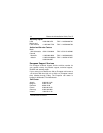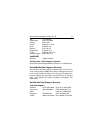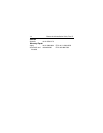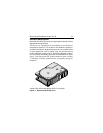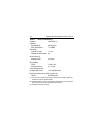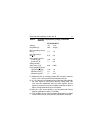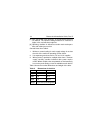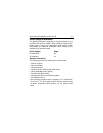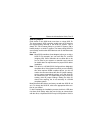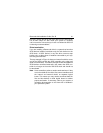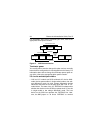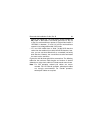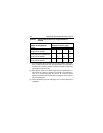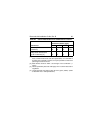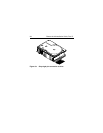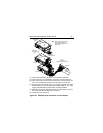
20 Barracuda 36 Installation Guide, Rev. B
SCSI ID jumpers
Each device on the SCSI chain must have a unique SCSI ID.
The host system’s SCSI controller usually uses the ID that has
the highest priority interrupt in the SCSI I/O system. This is
always ID7. ID0 is lowest priority in an 8-bit I/O system. ID8 is
lowest priority in a 16-bit I/O system. The lower priority SCSI IDs
are normally used for other SCSI devices such as this Barracuda
disc drive.
Note.
Most SCSI controllers (host adapters) allow you to skip a
SCSI ID. For example, you can have ID0, ID1, and ID3
(skipping ID2). Other controllers do not allow this so be
sure to refer to your system or controller user’s manual
for details about its requirements for proper SCSI device
installation.
Note.
This drive is a SCAM (SCSI Configured Auto Magically)
compliant drive. If the system into which you are installing
this drive requires SCAM compliant drives, you do not
need to be concerned about the drive ID jumper settings,
as the system automatically assigns your new drive the
ID it wants it to have. The system may or may not use the
existing drive ID jumper settings. Setting the drive ID
doesn’t hurt anything, but is not necessary in a SCAM
compliant system.
Most Barracuda disc drives are factory set with the SCSI ID set
at 0. To change the SCSI ID, refer to the appropriate drive sec-
tion for your model.
If, after completing the installation process, the drive’s LED does
not show on/off activity when the host is trying to communicate
with the drive, a duplicate SCSI ID may be the problem. If this is



